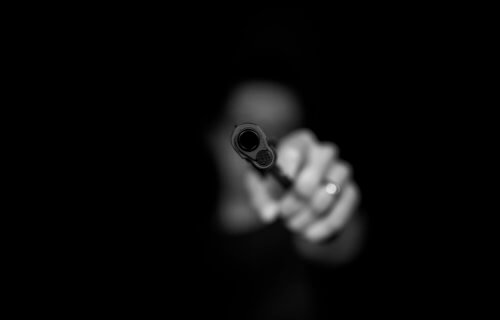LONDON — Gun ownership and laws surrounding firearms continue to be a hot-button issue in the United States. As lawmakers fight over who should have access to firearms, a disturbing study finds one group that can’t legally own them has too many — convicted felons. Researchers in California estimate that nearly 100,000 people in the U.S. own a firearm despite having a felony conviction.
Those convicted of a felony are banned from owning firearms, but so far the only state to issue a recall of these illegal weapons is California. Researchers, led by the University of California, Davis, say little attention is paid to those who legally purchase guns but are then banned later in life. Causes for a firearm ban include a conviction for a violent crime, a mental health emergency that requires hospitalization, or a domestic abuse restraining order issued against the gun owner.
Statistics show that few people actually turn in their weapons after losing their Second Amendment rights. In California, between five and 10 percent of gun owners, 21 to 49 years-old with a criminal history, are convicted of a felony within five years of their purchase.
Who is possessing guns illegally?
The study uses the Armed and Prohibited Persons System (APPS) database, updated in February 2015, to draw their conclusions. APPS cross-references data from the California Department of Justice’s archive, matching information on firearm ownership transfers with criminal convictions and restraining orders.
As of February 1, 2015, almost 19,000 people in California owned just under 50,000 weapons despite being legally banned from possessing them. The overwhelming majority, 92 percent, were handguns. The researchers then compared these findings with 2,400 randomly selected gun owners who had not been banned.
The study finds both groups are predominately male. A staggering 93 percent of those illegally possessing firearms are men. Men also make up 85 percent of the legal gun owners in the database.
Compared to legal gun owners, banned users are most likely to be between 35 and 54 years-old (60% illegal gun owners vs. 42.5% of legal), Black (11% vs. 4%), or Latino (27.5% vs. 16%).
On average, Americans who have lost the ability to own a gun have two disqualifying marks against them. Some offenders have as many as 85 bans to their name. Nearly half, 48 percent, of the lifelong bans in the database are due to felony convictions.
The majority of California’s illegal firearms holders live in or around densely populated urban areas in the state, such as Los Angeles and San Francisco.
What does this mean for the rest of America?
Researchers acknowledge they have incomplete numbers on gun bans in California because the records only date back to 1996. The mandate for recording rifle and shotgun transactions was enacted in 2014 and the database doesn’t include illegal purchases.
Despite having a partial picture of California gun ownership, researchers say they can make a fair estimate of the nationwide problem. Based on the state’s proportion of gun owners (about 4.2 million people) and the number of people with guns but banned for felonies (0.18% or 7,711), the report estimates there are 98,500 individuals in the U.S. who own a weapon in spite of their felony conviction.
“The numerous federal prohibitions on firearm ownership, combined with the fact that no other state is engaging in comparable efforts to reduce the prevalence of armed and prohibited persons through firearm recovery, suggest there are large numbers of prohibited firearm owners across the country, particularly in states where there are higher rates of firearm ownership and fewer barriers to purchasing a firearm,” researchers explain in a media release.
“The evidence supporting firearm prohibitions and interventions to reduce access to firearms among prohibited populations provides a prima facie reason to expect that recovering firearms from prohibited persons could reduce firearm violence.”
The study was published in the journal Injury Prevention.
Like studies? Follow us on Facebook!

I have been trying to find out the statistics about the percentage of gun related crimes in Vermont were committed by persons who had previous felony convictions. I have searched a ton of sites and I have not gotten an answer. There seems to be an effort on by the anti-gun lobby to suppress this information.
It seems that when we have a gun related crime here in Vermont, most of the time the report comes over the media that the person who committed the crime had a felony record. If felons are not allowed to have firearms, then why are so many convicted felons able to have guns and why are they NOT in jail for a long time after committing a subsequent crime?